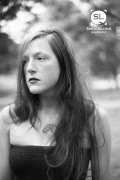This interview with Rodolfo Rivas is part of SmokeLong Quarterly‘s Global Flash Series. The English translation follows below after the interview in the original language, Spanish.
¿Cuándo, o por que, comenzaste a escribir?
Creo que he sido siempre un hacedor de historias. Las ideaba y me las contaba a mí mismo, cambiando ocasionalmente principios o finales, agregando personajes… Digamos que estuve por mucho tiempo muy cerca de aquellos que tejían historias antes de disponer de los signos gráficos de la escritura.
Un día descubrí que el género de historia corta era la vía expresiva natural para compartirlas, que la brevedad tiene su propio lenguaje, que puede alcanzar la razón y el sentimiento al unísono… Y comencé a escribir.
¿Te inspiró alguna persona o alguna situación en particular para esta obra?
Esta historia es una meditación sobre la percepción del tiempo y su valor absoluto en el ámbito vivencial.
Es una breve historia acerca del Hombre-Tiempo, y de su dependencia de esa percepción.
¿Qué te gustaría que una audiencia internacional entienda sobre tus temas?
Lo más importante es que el lector perciba la historia como una proposición con más de un nivel, donde la anécdota esta potencialmente conectada a otros desarrollos. Eso permite un disfrute intelectual más completo.
¿Qué estás leyendo por estos días?
Leo mucho, pero no mucha ficción. Especialmente no cuentos breves.
Hemingway leía novelas de detectives para no pensar en su propio trabajo.
Yo leo a Hemingway.
Tengo como libro de cabecera “Paris Era una Fiesta”, que cuenta con la prosa esencial y desnuda del Maestro sobre personajes y lugares de una época que me hubiera gustado vivir.
*
When, or why, did you start writing?
I think I’ve always been a storyteller. I would devise and tell them to myself, occasionally altering beginnings or endings, adding characters… Let’s just say that for a long time I was more akin to those who weave stories before I ever put pen down to paper.
One day I discovered that the [genre of short stories / short story genre] [was a / felt like the] natural way to share them, that brevity [has/had] its own language, which can [blend / give way to / reach] reason and sentiment in unison… And I began to write.
Did a[ny] particular person or situation inspire you for this story?
This story is a meditation on the perception of time and its absolute value in the [experiential realm / realm of experience].
It’s a brief story not unlike that of Father Time, and of his dependence on [that/this perception / the perception mentioned above].
What would you like an international audience to understand about your themes?
The most important thing is that the reader perceive the story as a proposition with more than one level, where the anecdote is potentially connected to other developments. That allows for a more complete [intellectual enjoyment / enjoyment intellectually.]
What are you reading these days?
I read a lot, but not much fiction. Especially not short stories.
Hemingway read detective novels to avoid thinking about his own work.
I read Hemingway.
On my nightstand sits “A Moveable Feast”, which, with the essential and naked prose of the master himself, tells of people and places belonging an era during which I would have liked to live.


